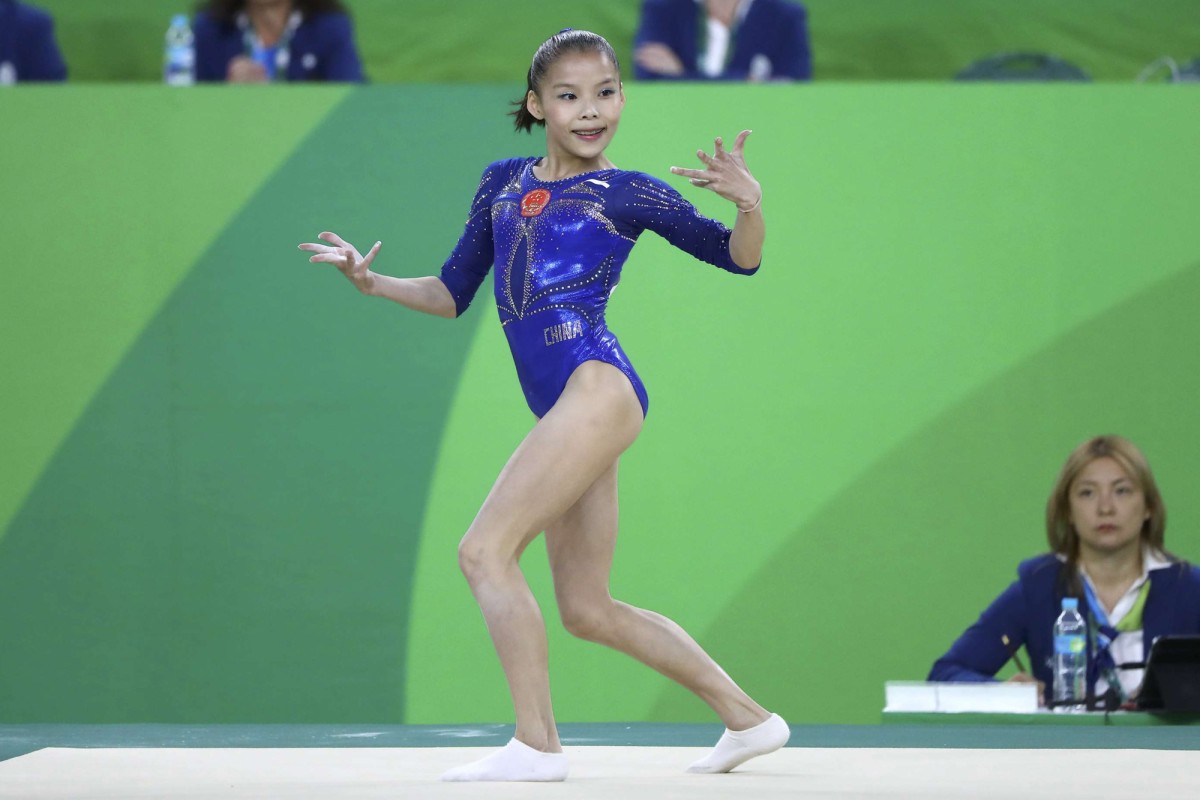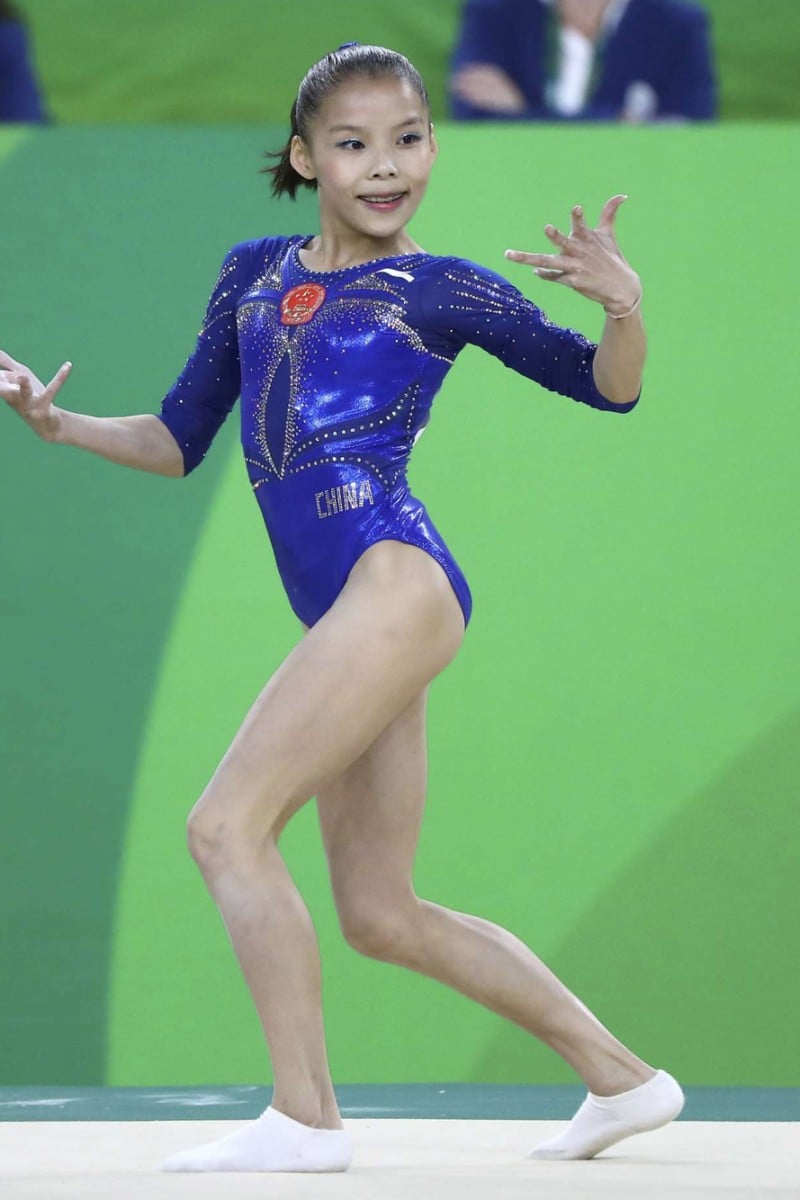 Shang Chunsong might look like a tween, but she’s old enough to compete.
Shang Chunsong might look like a tween, but she’s old enough to compete.After she failed to win a medal on the uneven bars at the Olympic Games in Rio last week, Chinese gymnast Shang Chunsong shed a tear. She had helped China bring home the bronze in the team competition, but she was unable to do the same for herself, taking fourth place after Germany’s Sophie Scheder took bronze.
Shang, 20, has many victories to her name. There is even a move named after her: the Shang is performed on the uneven bars.
Shang’s journey to the Rio Olympics has been a tough one. Growing up in a remote village in Zhangjiajie, in Hunan province, she and her family often went hungry and couldn’t afford heating in winter.
Every morning, her partially blind brother Shang Lei would carry her to school on his shoulders. When dusk fell, Shang Chunsong would help her brother to return home.
Her brother’s visual impairment could have been cured if the family were able to afford treatment.
Shang took up gymnastics when she was seven years old. She did well and so her brother dropped out of school to become a masseur to help pay for her training. Shang in turn wanted to earn money so that he could be cured.
The world hasn’t been particularly kind to her. Allegations of using underage gymnasts have plagued the Chinese team since the 2000 Olympics in Sydney, Australia. At the 2013 world competition, other competitors questioned her age.
Shang was born on March 18, 1996, but she still gets those awkward questions. She coolly told the media: “Chinese [people] normally look younger than Westerners, we can’t help that.”
Then later she added: “Chinese athletes are normally petite ... we don’t look that old, but we aren’t that young.”
In 2013, when age became an issue for her, she won the Chinese National Games, and with the winnings, she helped her family.
She won enough to put the down payment on a house for her family. Shang’s tiny shoulders – she weighs 34kg and is 1.43 metres tall – have literally lifted her family out of poverty. Her parents, both construction workers, no longer struggle to make ends meet.
So there was a lot riding on her getting a medal in Rio. It was her first Olympics and, as captain of the national team, she was expected to do well. But she and her team fell short of expectations.
Shang, with Fan Yilin, Mao Yi, Tan Jiaxin and Wang Yan, lost the silver by a fraction to Russia in the team final of the artistic gymnastics, as the US team led by the phenomenon Simone Biles won gold by the largest margin since 1960.
“I think everyone did a great job, great execution, but I’m not very happy with what I did on the uneven bars,” said Shang in a painful bit of self-criticism. She fell off during rotation two. “I made a mistake and my poor performance affected the score.”
At 20 years old, Shang was the oldest, with Fan, Mao and Wang being 16 and Tan 19. Again there were questions about her age.
“Me and Tan were born in ’96, the rest in ’99 – maybe we look it, but we’re not that young,” she said.
There was every reason for Shang to believe she would win on the uneven bars. At the 2015 World Championships in Glasgow, Scotland, in November, she had taken gold. But it was not to be in Rio. The petite athlete wept after losing out on a medal by a razor-thin margin in the women’s individual all-around, breaking the hearts of her many Chinese fans.
“My family has contacted me and comforted me. I told them I was fine and that I was not sad anymore. I was for sure sad when that game had just ended,” she said. “I have my regrets here. I wanted an individual medal.”
Shang scored 15.433 points to finish in fourth place behind Russian Aliya Mustafina (15.900) who won gold, silver medallist Madison Kocian (15.833) of the US, and Germany’s Scheder (15.566).
“I just want [my family] not to worry about me. I am fine. I have not made my dreams come true and I will keep going to make it happen. I want to tell them to take good care of themselves and just don’t worry about me,” Shang said after the contest.
But she has decided to turn her frustration into motivation. She has pledged to stage a comeback at the Tokyo Olympics in 2020.
